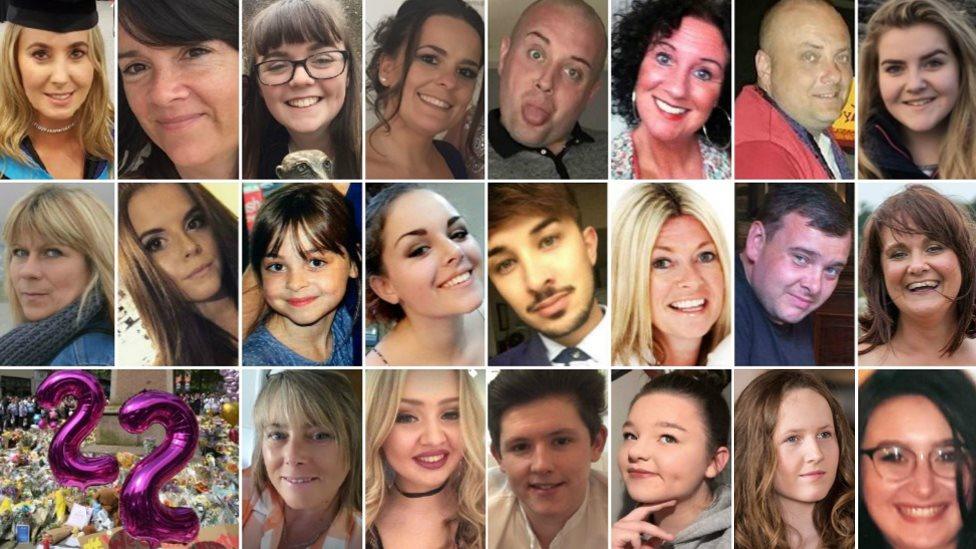Mosque 'would have done anything' to prevent Manchester Arena attack
- Published
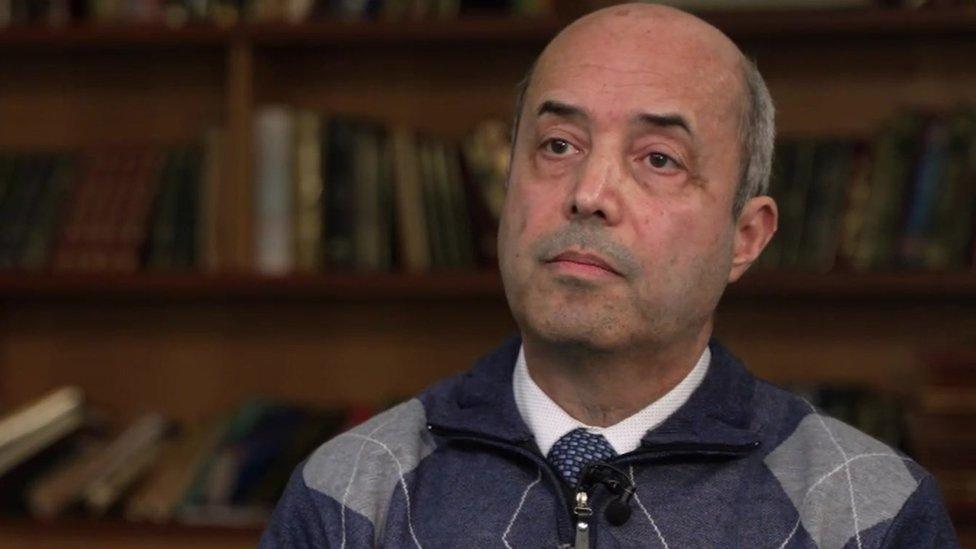
Fawzi Haffar said the mosque "did not radicalise anybody"
The chair of trustees at a mosque which was accused of turning a "blind eye" to extremist views prior to the Manchester Arena attack said he "would have done anything" to prevent the 2017 atrocity.
Fawzi Haffar said he felt Didsbury Mosque was "being used as a scapegoat" after it came under intense scrutiny during the Manchester Arena Inquiry.
Arena suicide bomber Salman Abedi and his family worshipped at the centre.
Mr Haffar said the mosque had "no room for radicalisation".
Twenty-two people were killed and hundreds more injured when Abedi detonated his homemade device at the end of an Ariana Grande concert on 22 May 2017.
John Cooper KC, who represents some of the bereaved families, previously told the inquiry that the mosque had "failed to confront extremism in the run up to 2017" and "continues to do so to this day".
He said the centre had "turned a blind eye" to extremist and violent views amongst parts of its congregation and "adopted a passive attitude" towards the dangers of radicalisation.
However, Pete Weatherby KC, who represents some of the other families, said there was no evidence, external that the Abedi family were radicalised at Didsbury Mosque.
Speaking exclusively to BBC North West Tonight, Mr Haffar said: "How can people say we have radicalised or are radicalising people?
"My children could have been at the arena. There were Muslim children at the arena.
"What Salman Abedi did was evil and he definitely did not become radicalised by listening to a 10-minute sermon here or joining forces with other so-called terrorists or other radicalised people at this centre.
"If we had known that Salman Abedi was a radical, if we were told by the security services or warned by the police to 'please watch out for this person', I would have done anything to prevent what happened. Anything."
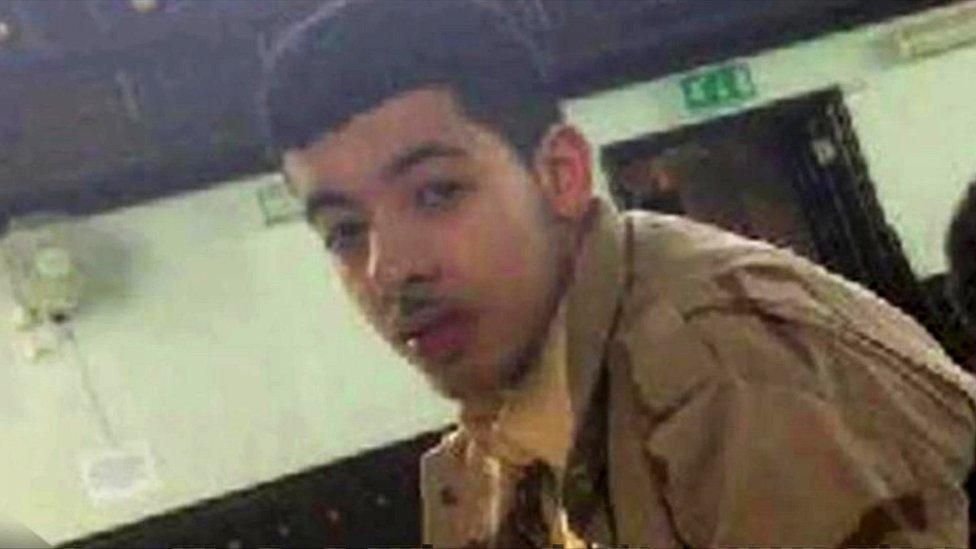
Salman Abedi planned the attack with his younger brother Hashem
His comments were made ahead of the publication of the final Manchester Arena Inquiry report, which will focus on the radicalisation of Abedi as well as whether the attack could have been prevented.
Mr Haffar said he felt Didsbury Mosque was being used as a scapegoat and called for a parliamentary investigation into what the security services knew about the Abedi family.
He said he was never alerted to any concerns by police or counter-terrorism officers.
"If we are not aware of these radical people who are coming into this centre to pray, I cannot help the police," he said.
Abedi is believed to have occasionally attended a Friday prayer session at the mosque.
His elder brother Ismail taught at the centre and, before he left for Libya in 2011, his father Ramadan Abedi would sometimes offer the call to prayer, or adhan.
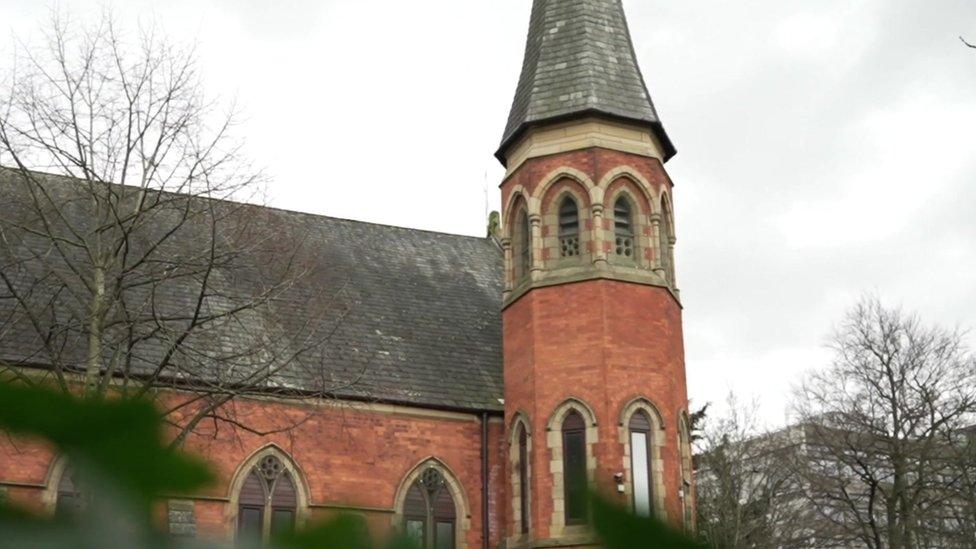
The Abedi family attended Didsbury Mosque while living in the area
Mr Haffar said there could be up to 1,100 people at Friday prayers, which are open to all.
Other sessions only typically have 30 to 40 core attendees, he said.
The arena inquiry has also heard allegations the mosque hosted meetings of supporters of the terrorist groups fighting in the Libyan civil war before the arena bombing.
In 2018, two Islamic scholars told the BBC that a sermon delivered at the mosque during Friday prayers six months before Abedi detonated his suicide bomb had called for "armed jihad". This has been denied by the mosque.
Counter-terrorism officers investigated and later concluded no offences had been committed.

Twenty-two people died in the bombing on 22 May 2017
Mr Haffar said that while he did not believe Salman Abedi could have heard anything at the mosque that could have encouraged his views, the centre had made changes including thoroughly vetting those who now give sermons.
"I can definitely say there is no way he was radicalised at the centre here in Manchester," he said.
"After the sermon took place, we suspended the imam and investigated his sermon.
"So did the police and the Charity Commission."
Salim Al-Astewani, a volunteer imam at the mosque, added: "Obviously you can't control every individual but the main thing is that there is a proper management system in place and every sermon, every activity, is well-designed, well-prepared.
"We have received training. And what we do now is address subjects in our sermon related to the local community.
"I am absolutely sure - clear in my mind - that the way forward is all positive and for the benefit of the wider society as well as the community."
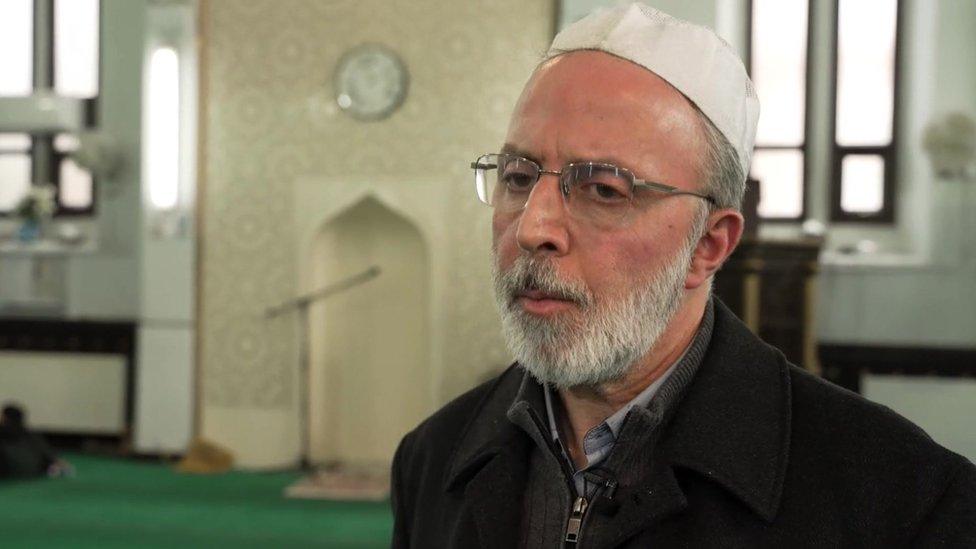
Salim Al-Astewani said the subjects addressed are now agreed upon with management
Tracey Pook, a community engagement officer at the mosque, said the centre had been targeted following the bombing.
"It was barbaric what he did - everyone here thinks that," she said.
"We've had letters, we had some far-right activists who came. We had an arson attack.
"We had one group who thankfully got stopped by the police who were coming to smash the mosque up.
"So we've had to deal with all these threats as well, and far-right threats. It's been so unpleasant because the congregation of the people who come here and the community doesn't deserve this.
"I know it's nothing compared to the [victims'] families. All I can say to them is we support you. We feel the pain as a community."
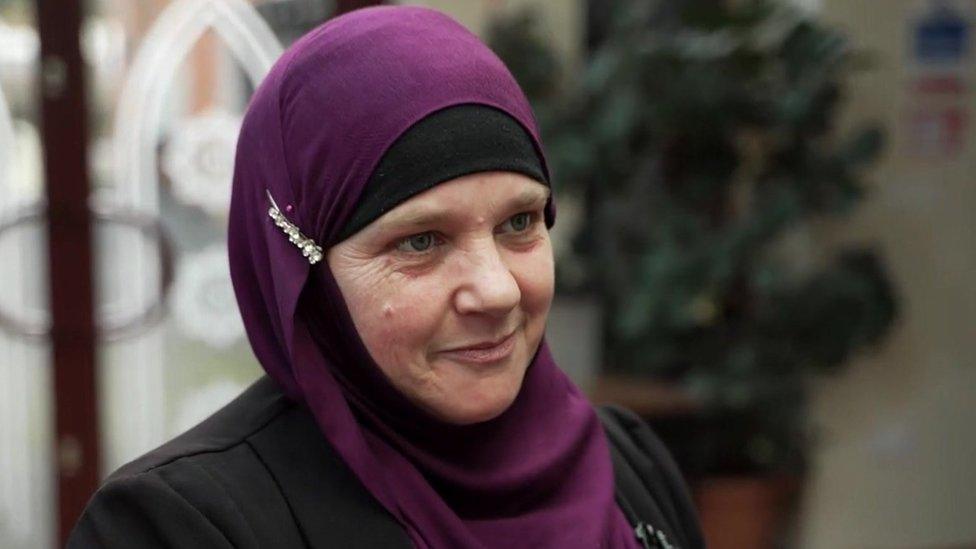
Tracey Pook said Didsbury Mosque had been targeted by extremists
Mr Haffar said he hoped the victims' families would gain some closure from the final inquiry report into the atrocity when it is published later.
"We want to really put all this behind us but again I cannot put all of what's happened behind me," he said.
"Twenty-two victims have gone. I cannot forget about them.
"But I would say to their families 'We should work together'."
You can watch more on this story on BBC North West Tonight on Thursday 2 March

Why not follow BBC North West on Facebook, external, Twitter, external and Instagram, external? You can also send story ideas to northwest.newsonline@bbc.co.uk
- Published1 March 2023

- Published28 February 2023
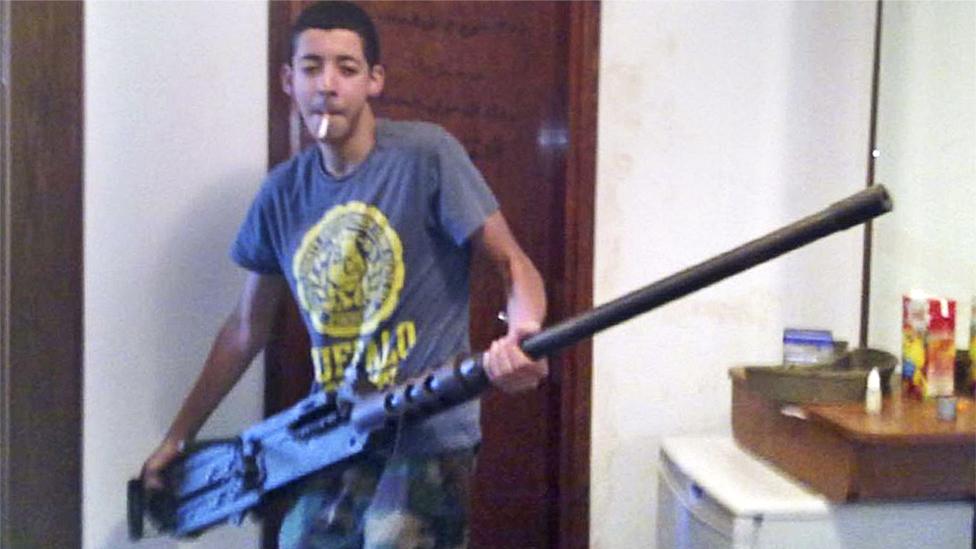
- Published3 November 2022
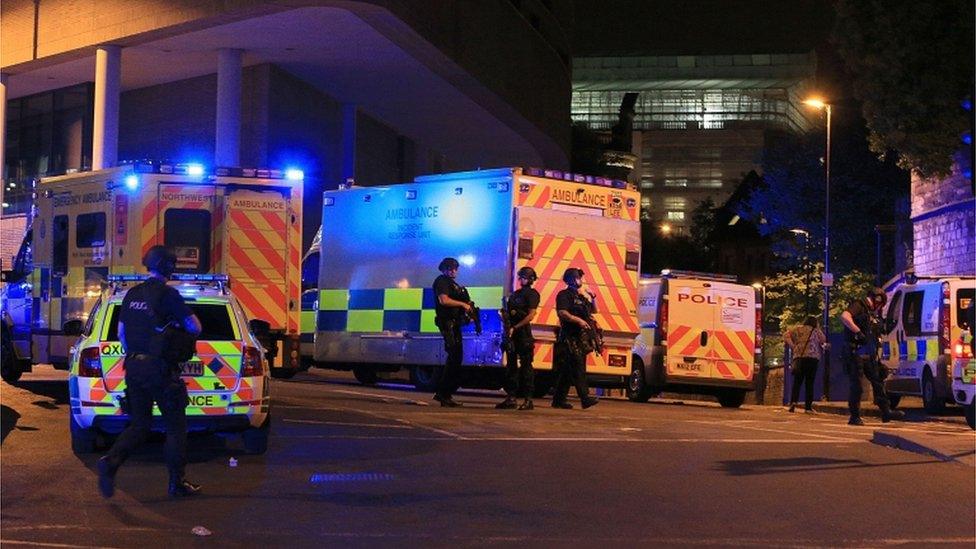
- Published3 November 2022
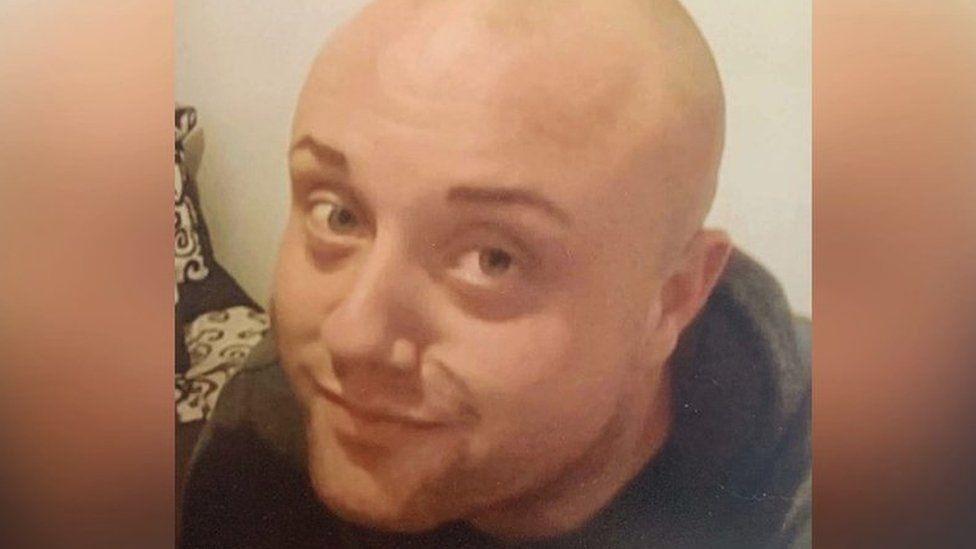
- Published3 November 2022

- Published29 December 2021

- Published7 September 2020
